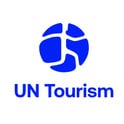UNWTO at ITB Berlin: Setting Priorities for Tourism
UNWTO returned to ITB Berlin with a clear message: Tourism is back and committed to delivering positive change that goes beyond the sector itself.
Tourism returns – why ITB matters
ITB Berlin is the world's biggest tourism and travel trade fair. This week's event was the first in-person ITB for four years and comes as the sector's recovery is well underway. According to UNWTO, international tourism could reach 80 to 95% of pre-pandemic numbers by the end of the year, with 70 million international arrivals recorded in January alone (more than double the number of January 2022).
The return of ITB was heralded by UNWTO as proof of strong confidence in travel as "the ultimate barometer of trust". UNWTO Secretary-General Zurab Pololikashvili was invited to officially open the event, alongside Germany's Vice-Chancellor Robert Habeck, Georgian Prime Minister Irakli Garibashvili, Berlin Mayor Franziska Giffey, and public and private sector leaders.
Education and Investment: Key Priorities for Tourism
At the official ITB opening, UNWTO reinforced the importance of education, training and investments for tourism's ability to deliver on its potential.
In Berlin, UNWTO announced a new partnership that will see the Organization work with Saudi Arabia to promote education and professional development in tourism.
Alongside this, UNWTO also signed a new agreement with the Business School of Lucerne University of Applied Sciences and Arts to partner towards the creation of a new Bachelor of Science degree in International Sustainable Tourism.
The key message of investing in people was also stressed as UNWTO took part in a special Industry Roundtable. The event built on UNWTO's status as the bridge between the public and private sectors. Recognizing the vital need for more and better-targeted investments to put transformative plans into action, UNWTO also confirmed that World Tourism Day 2023 will be celebrated around the theme of "Tourism and Green Investments".
Accelerating tourism climate action
Against the backdrop of ITB Berlin, UNWTO released a new report highlighting the progress that global tourism has made in measuring greenhouse gas emissions. "Climate Action in the Tourism Sector" was developed by UNWTO with support from the German Government and in collaboration with UN Climate Change (UNFCCC). The recommendations will help ensure more reliable measurements of GHG emissions towards fulfilling the commitments of the Glasgow Declaration on Climate Action in Tourism.
Tourism for all
ITB 2023 coincided with International Women's Day. To mark the occasion, UNWTO was joined by UN Women to present a summary of the achievements of the "Centre Stage: Women's empowerment during the COVID-19 recovery" project. The initiative made clear the extent to which women working in tourism were particularly impacted by the pandemic. And while tourism remains a leading employer of women, UNWTO and UN Women jointly stress that the sector is still to deliver on its women's empowerment potential.
Finally, to further advance the diversification of the sector and the growth of areas that can deliver new benefits, a special UNWTO Roundtable Discussion on "Connecting Sports Tourism to Health" was held at ITB ahead of the 2nd World Congress Tourism Congress in Zadar, Croatia (26-27 April).
RELATED LINKS
About UN Tourism
The World Tourism Organization (UN Tourism) is the United Nations agency responsible for the promotion of responsible, sustainable and universally accessible tourism.
As the leading international organization in the field of tourism, UN Tourism promotes tourism as a driver of economic growth, inclusive development and environmental sustainability and offers leadership and support to the sector in advancing knowledge and tourism policies worldwide.
Our Priorities
Mainstreaming tourism in the global agenda: Advocating the value of tourism as a driver of socio-economic growth and development, its inclusion as a priority in national and international policies and the need to create a level playing field for the sector to develop and prosper.
Promoting sustainable tourism development: Supporting sustainable tourism policies and practices: policies which make optimal use of environmental resources, respect the socio-cultural authenticity of host communities and provide socio-economic benefits for all.
Fostering knowledge, education and capacity building: Supporting countries to assess and address their needs in education and training, as well as providing networks for knowledge creation and exchange.
Improving tourism competitiveness: Improving UN Tourism Members' competitiveness through knowledge creation and exchange, human resources development and the promotion of excellence in areas such as policy planning, statistics and market trends, sustainable tourism development, marketing and promotion, product development and risk and crisis management.
Advancing tourism's contribution to poverty reduction and development: Maximizing the contribution of tourism to poverty reduction and achieving the SDGs by making tourism work as a tool for development and promoting the inclusion of tourism in the development agenda.
Building partnerships: Engaging with the private sector, regional and local tourism organizations, academia and research institutions, civil society and the UN system to build a more sustainable, responsible and competitive tourism sector.
Our Structure
Members: An intergovernmental organization, UN Tourism has 160 Member States, 6 Associate Members, 2 Observers and over 500 Affiliate Members.
Organs: The General Assembly is the supreme organ of the Organization. The Executive Council take all measures, in consultation with the Secretary-General, for the implementation of the decisions and recommendations of the General Assembly and reports to the Assembly.
Secretariat: UN Tourism headquarters are based in Madrid, Spain. The Secretariat is led by the Secretary-General and organized into departments covering issues such as sustainability, education, tourism trends and marketing, sustainable development, statistics and the Tourism Satellite Account (TSA), destination management, ethics and risk and crisis management. The Technical Cooperation and Silk Road Department carries out development projects in over 100 countries worldwide, while the Regional Departments for Africa, the Americas, Asia and the Pacific, Europe and the Middle East serve as the link between UN Tourism and its 160 Member States. The Affiliate Members Department represents UN Tourism's 500 plus Affiliate members.
UN Tourism Communications Department
+34 91 567 8100
UN Tourism
